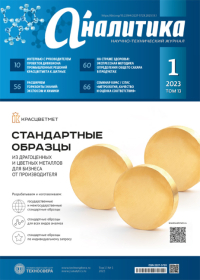Features of Determining the Water Content in Transformer Oil By Gas Chromatography
The water content in transformer oil is one of the important indicators characterizing the state of internal insulation in high-voltage transformers. Water in the insulation system is present in several forms (bound, dissolved, emulsion, layered). Currently, of all the known methods for determining the water content in insulating liquids, only two allow measuring its total mass concentration. They are based on coulometric titration and gas chromatography. During the operation of high-voltage equipment, the complex chemical composition of the oil changes greatly. Compounds are formed in it that interfere with the determination of the target component – water. Therefore, when analyzing old oxidized oils, it is of great importance to select the optimal conditions for carrying out technological operations, which allow obtaining the most reliable result. The results of quantitative determination of water from operational (oxidized) oil under different chromatography modes are presented. The data of chromatographic analysis are compared with the results of water analysis by the Karl-Fischer method. The closest values of water concentration were obtained at an evaporator temperature regime of at least 320 °C, which differs from the conditions specified in the standard procedure.

 rus
rus



